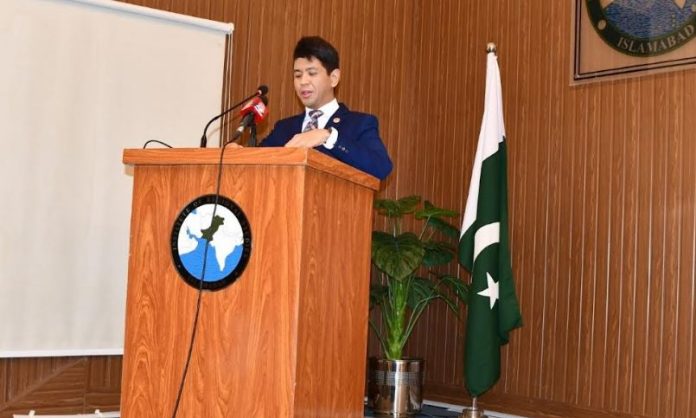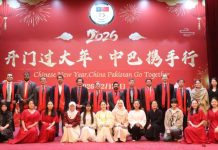ISLAMABAD, AUG 16 /DNA/ – Speaking at the Institute of Regional Studies (IRS), Syafik Firdaus Hasbullah, Deputy Head of Mission for Malaysia, called for increased cooperation between Pakistan and Malaysia in defense and security, science and technology, renewable energy, and climate change besides education, culture, and people to people contact. He noted that Malaysian exports to Pakistan had mainly focused on the agricultural sector, textiles, and chemical products, with less emphasis on high-tech industry cooperation.
While identifying the core areas of cooperation between the two countries, he stressed the need for improving the quality of products to meet the competitive demands. Hasbullah added that the Malaysian government was prepared to assist Pakistan in improving the quality of its goods, including providing training and guidance to Pakistani businessmen through the Malaysian Technological Cooperation Program (MTCP). He specifically mentioned that since the establishment of MTCP in 1980, more than 700 people from Pakistan have benefitted from MTCP courses which include Islamic tourism, anti-corruption, counterterrorism, palm oil industry, Islamic finance, technical training, and the halal industry, he added.
During his presentation, he highlighted the progress in the Pakistan-Malaysia bilateral relationship since its inception in 1957, emphasizing cooperation in trade, investment, tourism, education, health, and science and technology. Hasbullah also expressed the view that the current bilateral trade volume of around 1.78 billion dollars does not reflect the strong bond between the two countries and its people, and therefore, both countries need to work on high tech industrial cooperation between the two countries, he added. “Being a sectoral dialogue partner of the ASEAN Regional Forum, Pakistan has significant opportunities to collaborate with Malaysia, and other members of the organization,” he emphasized. He noted that following the Free Trade Agreement, Malaysian palm oil exports to Pakistan surged, alongside imports from Pakistan of agricultural products, textiles, apparel, footwear, fresh or frozen seafood, chemicals, and other manufactured goods., he said.
The event drew a large gathering, including foreign diplomats, government officials, academics, journalists, and students.

















